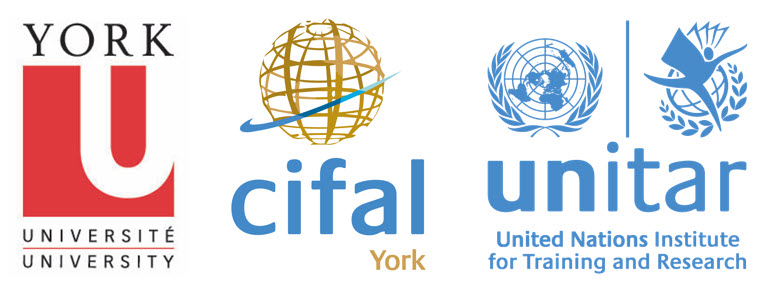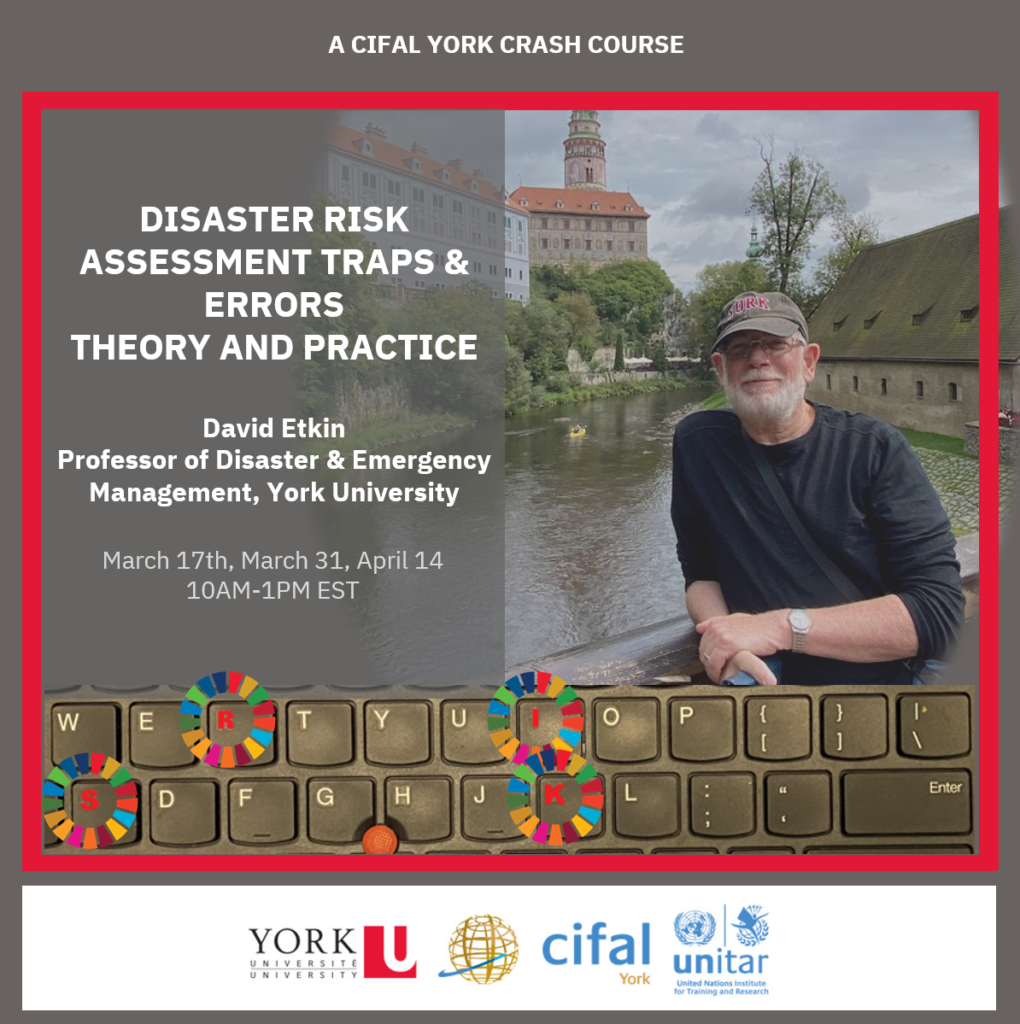
A Virtual (Zoom) Crash Course from CIFAL York
For executives and senior managers in public and private sectors, professionals and students in disaster & emergency management, business continuity professionals, risk managers, researchers in the area of disaster risk assessment, etc.
Module 1: March 17th, 2023, 10am - 1pm EST
Module 2: March 31st, 2023, 10am - 1pm EST
Module 3: April 14th, 2023, 10am - 1pm EST
Registration fee: CAN $ 280.65
Register here
Course instructor: Professor David Etkin
David Etkin is a Professor of Disaster and Emergency Management at York University. Previously, he worked for Environment Canada from 1977-2005. During his career, he has been a weather forecaster in Nova Scotia and Ontario, taught meteorology to new forecasters, and done applied research in the Arctic and Industrial Climatology Divisions of the Canadian Climate Centre. In 1993 he joined the Adaptation and Impacts Research Group of the Meteorological Service of Canada, specializing in the interdisciplinary study of natural hazards and disasters, and climate change. From 1996-2005 he worked at the University of Toronto with the Institute for Environmental Studies doing research on natural hazards and disasters. He has contributed to several national and international natural hazard projects including the 2nd U.S. national assessment of natural hazards, the IPCC, was Principal Investigator of the Canadian National Assessment of Natural Hazards and is Past President of the Canadian Risk and Hazards Network. His current areas of research are disaster risk assessment and disaster ethics. He has 90 publications including two textbooks and 6 edited volumes.


Course Description
A crash course of about 9 hours aimed at preparing executives for effectively performing disaster risk assessment. The course will cover the theories on risk analysis, models, and methodologies used in the risk assessment process. The course content will be reinforced by real-world examples of common mistakes made and the best practices used for risk assessment. Students will be provided with effective strategies for performing risk assessments and avoiding these common traps and errors.

Course Learning Objectives
After taking this course participants will:
- Have a theoretical and practical understanding of the risk assessment process that is specific to disaster risk.
- Be aware of the traps and common errors that risk assessors fall into.
- Have working strategies based on examples to avoid these traps and errors.
- Be able to illustrate how risk theory should translated into practice.
- Understand how ethics and values must be used and applied to the risk assessment process.

Course Approach
The course will be a mix of theory, applications, and practical exercises in order to provide the knowledge but also to hone some of the skills required for successful disaster risk assessments. Emphasis is put on the common traps and errors made during the risk assessment process. risk models and methodologies, and social and ethical considerations for risk analysis.

Introduction to Risk Analysis (3 hours)
Objectives:
- Risk as a socially constructed concept.
- Risk analysis versus the precautionary principle - how to choose?
- Risk equations.
- All-hazards versus risk-based approaches.
- Rare events, fat tails, black swans & existential risk.
- Fantasy documents.
- Understanding the tasks related to communication and public information within an EOC setting.

Risk Models and Methodologies (3 hours)
Objectives:
- Risk Matrix: Pros and Cons. How to avoid traps when constructing a risk matrix.
- Risk Indices: Pros and Cons. How to avoid traps when constructing a risk index.
- Valuation methodologies: Willingness to pay versus willingness to receive. What are the consequences of choosing one over the other?
- Categories of risk - why they matter.
- The social amplification of risk framework.

Psychological and Ethical Considerations for Risk Analysis (3 hours)
Objectives:
- Risk perception: Why we suck at risk.
- Cognitive biases: Heuristics and risk estimation.
- The psychometric Paradigm
- The importance of trust and affect on risk perception.
- Ethical risk analysis: How to inject ethics and values into a risk assessment and why it matters if you don't...
Certificate of course completion will be provided to those who finish the course by CIFAL York.
